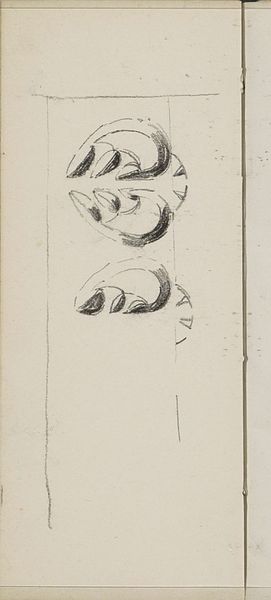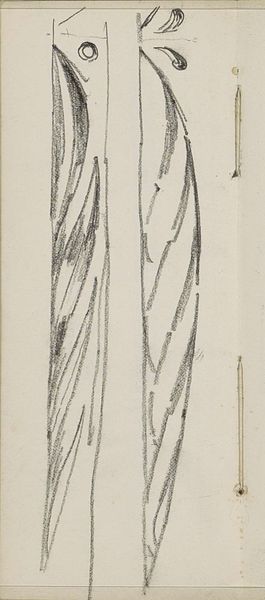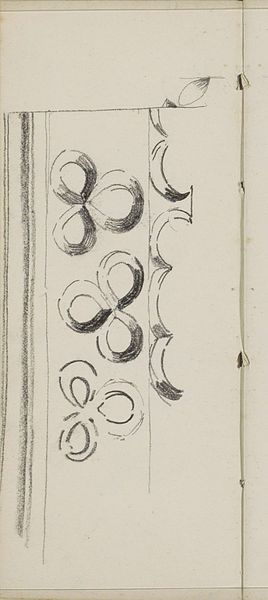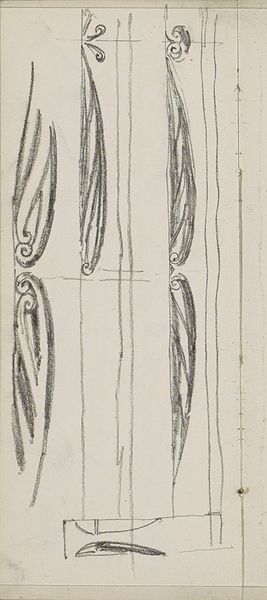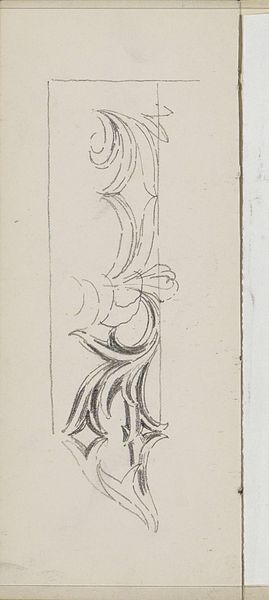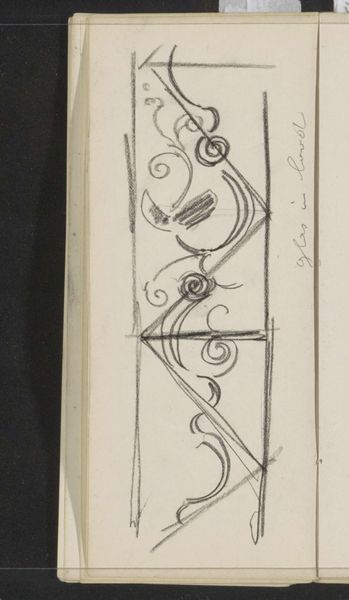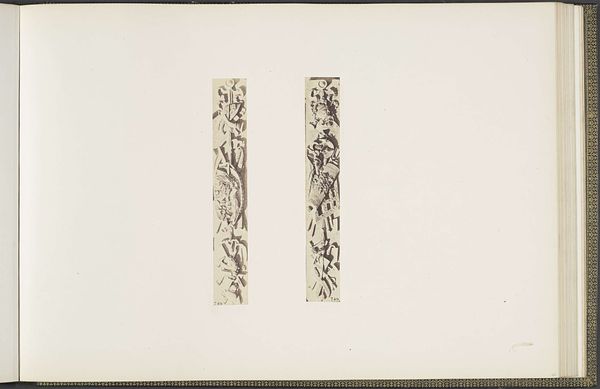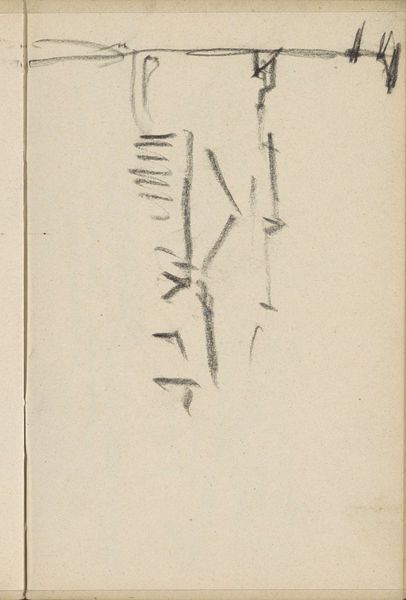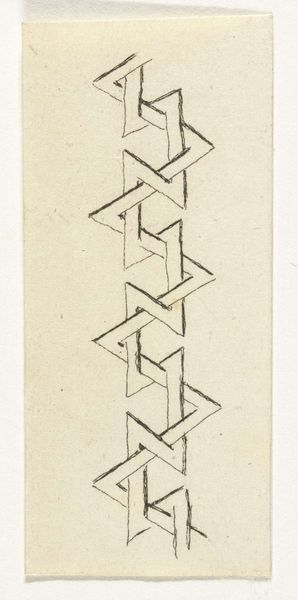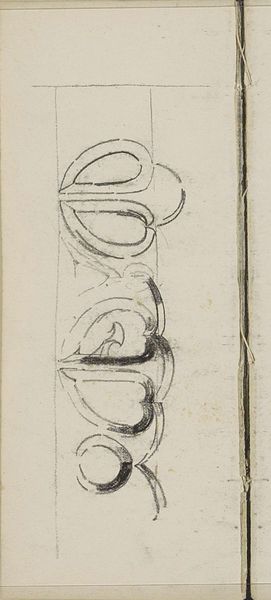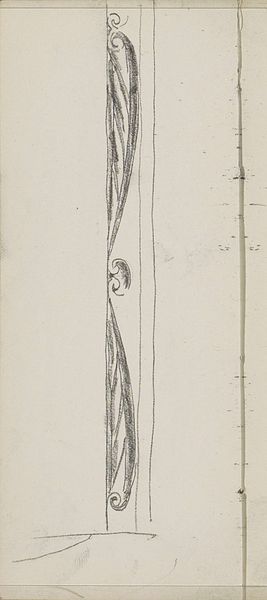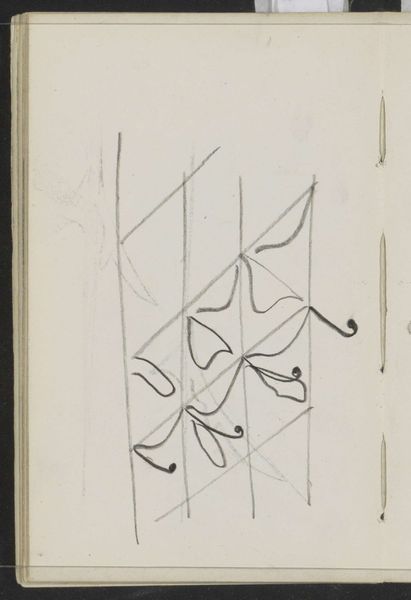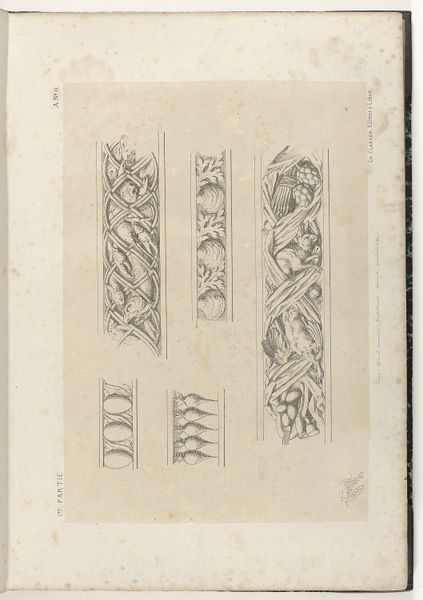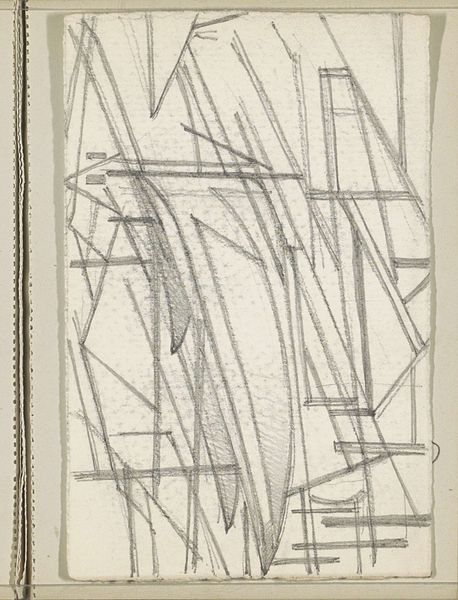
drawing, paper, pencil
#
drawing
#
art-nouveau
#
ink paper printed
#
paper
#
linocut print
#
geometric
#
pencil
#
abstraction
#
line
Dimensions: height 159 mm, width 105 mm
Copyright: Rijks Museum: Open Domain
Editor: We are looking at "Drie banden met bladmotieven," or "Three Bands with Leaf Motifs," a drawing from 1876 to 1924 by Gerrit Willem Dijsselhof, rendered in pencil, ink, and linocut print on paper. I am struck by the repetition and simple abstraction. What do you make of it? Curator: The linocut print links this piece to the broader Arts and Crafts movement of the late 19th and early 20th centuries. It's worth remembering that art didn't exist in a vacuum. This piece seems simple, yet it actively engaged with a desire to move away from industrial production toward a society where more could be artisanal craft makers, like Dijsselhof. Do you see this piece being used, reproduced perhaps in a domestic space? Editor: Yes, the leaf patterns would complement fabrics and wallpaper, adding texture to a living room. It feels both simple and ornate. Where do you think its abstraction comes in? Curator: This type of simplification can be interpreted as a desire for art to return to its elemental roots and, like in geometric abstraction, connect with something universal and inherent to the structure of our experience, rather than focusing on realism. Its reproduction as printed matter is especially crucial for dispersing such social ideologies around a universal, minimalist ideal. Editor: So the very nature of this design allowed the values of this art movement to permeate society. Curator: Precisely! The linocut print format made art more accessible, integrating artistic ideals into everyday life. Its purpose extends beyond the purely aesthetic into the societal. Editor: I hadn't thought about it that way. It shows how an apparently minimalist design can actually say quite a lot! Thanks for shining a light on this context. Curator: My pleasure. Understanding art's historical role changes how we appreciate these leaf motifs.
Comments
No comments
Be the first to comment and join the conversation on the ultimate creative platform.
